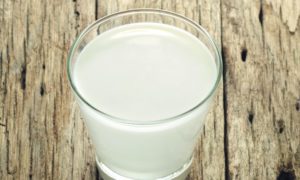
Adidas-Ukraine has rented 600 square meters of space for two stores in the River Mall shopping and entertainment center being under construction in Darnytsky district in Kyiv.
The press service of the River Mall trade and entertainment center told the Interfax-Ukraine news agency the Adidas shop will be almost 412 square meters, the Reebok store will occupy 186 square meters.
Both stores will open in new concepts for Ukraine: the design of the Adidas store will be in accordance with the concept of Stadium, and Reebok in the FitHib 2.0. concept that is new for Europe.
The facilities will be located on the second floor of the River Mall shopping center in the area of sporting goods and panoramic elevators.
“The range of goods in the stores will include modern sportswear for professional sports and outdoor activities, a total of more than 300 items,” the company said.
Adidas-Ukraine was founded in 1996. It is engaged in the sale of goods for sports.
The owner of the company is Adidas AG (Germany).
The opening of the River Mall trade enter is scheduled for May 2019. The anchor tenants will be Inditex Group stores, a Silpo supermarket chain, a Planeta Kino cinema with IMAX, and a Papashon entertainment center. The specifics of the project will be a food court and an event area with an open terrace and a view of the Dnipro River.

PrJSC Ternopil Dairy Plant (the Molokiya brand) in 2018 received UAH 42.9 million of net profit, which almost corresponds to the result for 2017.
According to the company’s annual report, the net income for 2018 amounted to UAH 1.8 billion (18% up), gross profit to UAH 416.4 million (41% more). Current liabilities of the company rose to UAH 160.55 million (32% more), long-term liabilities to UAH 175.9 million (7% more).
According to the report, in 2018 the company produced 56,000 tonnes of dairy goods, including 25,400 tonnes of milk, 11,100 tonnes of kefir, 6,600 tonnes of sour cream, 5,300 tonnes of yogurt and 3,100 tonnes of butter, as well as 2,000 tonnes of cheese and casein.
The company last year invested UAH 25.8 million in non-current assets, of which UAH 23 million is investment in equipment.
According to the company’s website, the owner of the controlling stake in the plant is businessman Vitaliy Kovalchuk, who directly and through affiliates owns 51.2%.
PrJSC Ternopil Dairy Plant was founded in 2000. It produces goods under the brand Molokiya, exports butter to Saudi Arabia, Morocco, Georgia, Turkey, and Kuwait.

The Ukrainian government has broadened its list of banned Russian commodities to include Portland, alumina, blast furnace, sulfate resistant, and similar types of neat cement, both dyed and non-dyed, ready-to-use or clinker, as well as plywood, veneered boards, and similar plywood materials.
The decision was made at a government meeting on Wednesday.
“It is prohibited to import into Ukraine such groups of Russian commodities as industrial goods, mineral fertilizers, agricultural products, and transportation vehicles, including cement and plywood,” the Ukrainian First Deputy Prime Minister and Economic Development and Trade Minister, Stepan Kubiv, said presenting the resolution.
According to the Ministry of Economic Development and Trade, Ukraine imported almost $17 million worth of cement products from Russia in 2018, while plywood imports amounted to $19.7 million over that period.

The Olkom Group plans in autumn 2019 to supply a first batch of goods (margarine spread) to Poland, Board Chairman of PrJSC Kyiv Margarine Plant, which is part of the group, Yuriy Yevenko has said.
“We will start trial deliveries to Europe this season – in September. Now we are negotiating with one Polish company. However, they want products under their own trademark, so we will not export under our own trademark yet. The volume of the first delivery is 40 tonnes: this is enough so that they put the products on the shelves of supermarkets. We plan to increase the share of direct exports to 10% of the total production within three to five years,” Yevenko told Interfax-Ukraine.
According to him, the company increased production by 75% in January-March 2019 (mainly thanks to b2b products), and by the end of the year it plans to double production in monetary terms.
“Last year we earned about UAH 600 million of revenue, and this year we set a goal to earn UAH 1.2 billion,” he said.
He added that in 2018, the company produced about 40,000 tonnes of products, of which 23,000 tonnes were tolling services for oil refining.
Over 2018-2019, company has invested about $1 million in boosting the production capacity, and is currently in talks with the European Bank for Reconstruction and Development (EBRD), International Finance Corporation (IFC) and two investment funds.
At the same time, according to Yevenko, in three to five years, Olkom should complete the repayment on loans attracted about 10 years ago and consider expanding production outside Kyiv, but the company does not intend to leave the site in Kyiv.

From May, 16 till May, 19 in the «Kyivan Rus Park» the World Medieval Combat Championship IMCF (within the Medieval Combat Festival) will take place.
Over 1000 fighters from about 30 countries all over the world will gather on the big tilting-yard of Ancient Kyiv to fight for the title of the world champions.
The sportsmen will put on heavy knight armor, will take in their hands the medieval weapon made according to the historical samples and will face each other in real medieval battles. During four days it will be possible to see single and group fights and even the women`s duels. Every evening the guests will be awaited by buhurts – mass fights, the largest of which will take place on Saturday – up to 500 against 500 warriors.
These are not staged fights, here everything is for real!
In between the fights an entertaining program with equestrian performances, flash mobs, games and master-classes will be waiting for the guests. And in the evening – firing flaming kernels from the Trebuchet, and on Saturday– also a fire show. On Sunday it will be possible to see the most intriguing part of the Festival – the awarding of the winners.
The ticket price to the Medieval Combat Festival:
• for pensioners and students – 150 UAH.,
• for schoolchildren – 100 UAH.,
• for preschool children – for free,
• a full adult ticket:
• for 1 day – 300 UAH
• for 2 days – 400 UAH
• for 3-4 days – 500 UAH
Ancient Kyiv opens at 10:00.
Ancient Kyiv in the «Kyivan Rus Park» is located in Kyiv region, Obukhiv district, the vill. Kopachiv.
Route taxis leave from Kyiv from the «Vydybitchi» metro station.
Details on the website www.parkkyivrus.com
The Interfax subscribers can save money with the “openbusiness-20” promo code for a 20%-discount for a full price adult ticket to the Principality of Kyivan Rus:
– by previous order by tel.: +38 044 461-99-37, +38 050 385-20-35
– or at the cash desk at the entrance to the «Kyivan Rus Park».

The share of vacant space on the shopping centers market in Kyiv in January-March 2019 fell by 0.2 percentage points, to 2.8%, according to a study of CBRE Ukraine (Kyiv). “Despite the commissioning of new facilities, the average vacancy rate decreased by 0.2 percentage points from the beginning of the year and amounted to 2.8% of vacant premises,” the company said in the study.
According to the company, in January-March this year, rents for the best retail premises increased 7-16% and ranged from $80-110 per sq. m. a month. At the same time for other retail premises, the rates remained unchanged, at around $42-60 per sq. m. a month.
The volume of retail turnover in Kyiv in January-February 2019 (the latest available data) increased 6.9%, with a slowdown in consumer price index growth from 8.8% in February to 8.6% in March.
During this period new brands entered the retail real estate market, including Decathlon in Retail Park Petrivka, Claudie Pierlot and Weill in the shopping center Gulliver and Missha in the shopping center Lavina Mall. A new supply of shopping centers was presented by the Oasis shopping center and the Smart Plaza Obolon shopping center, which led to an increase in the total supply by 2.1%, to 1.13 million sq.m.